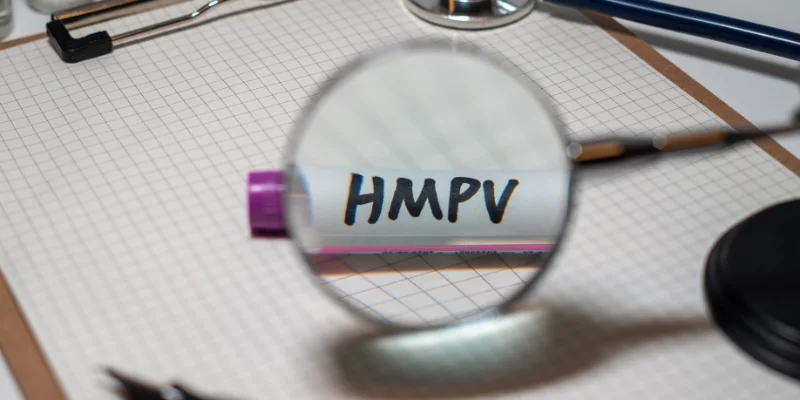hMPV (Human Metapneumovirus)
Human metapneumovirus (hMPV)- belongs to the Pneumoviridae family. It was initially identified in 2001 by Dutch researchers and although discovered recently it is present in human population for many years.
HMPV usually affects the respiratory system, symptoms can present as mild flu like illness to a severe respiratory illness. It can affect all age groups, but it is of particular risk to the younger and older age group and those who have a weakened immune system.
Common symptoms include:
- Fever/Body ache
- Malaise
- Running nose
- Cough
- Breathlessness
Symptoms can be mild flu like or can progress to breathlessness and other respiratory complications depending on person’s immunity and added co-morbidities present.
Who is Most at Risk?
As in all respiratory ailments risk is more in young children especially infants and toddlers and Older adults especially above 65 years who have other health conditions like asthma, diabetes and risk is also high in those patients undergoing chemotherapy, autoimmune illness and organ transplant.
How can you stay protected?
As prevention, since the virus is a kind of at an outbreak stage, it advisable to follow simple yet effective precautions:
- The foremost step is to stay hydrated, drink plenty of fluid, and stick to nutritious food
- Practicing good hygiene – washing hands and avoid touching your face frequently
- If you or someone around you is feeling sick of have cold, encourage to wear mask
- As there is no vaccination or dedicated medicine for HMPV it is prescribed to treat the symptoms with doctor consultation
DOS:
- Cover your mouth and nose with handkerchief or tissue paper, when you cough or sneeze,
- Wash your hands often with soap and water or alcohol-based sanitizer
- Avoid crowded places
- Stay away from public places if you have fever, cough and sneezing
- Adequate ventilation with outdoor air is recommended in all settings to reduce the transmission
- Stay at home and limit contact with others if you are sick
- Drink plenty of water and eat nutritious food
DON’TS
- Reuse of tissue paper & hand kerchief
- Close contact with sick people, sharing of towels, linen etc
- Frequent touching of eyes, nose & mouth
- Spiting in public places
- Self-medication without consulting the physician

